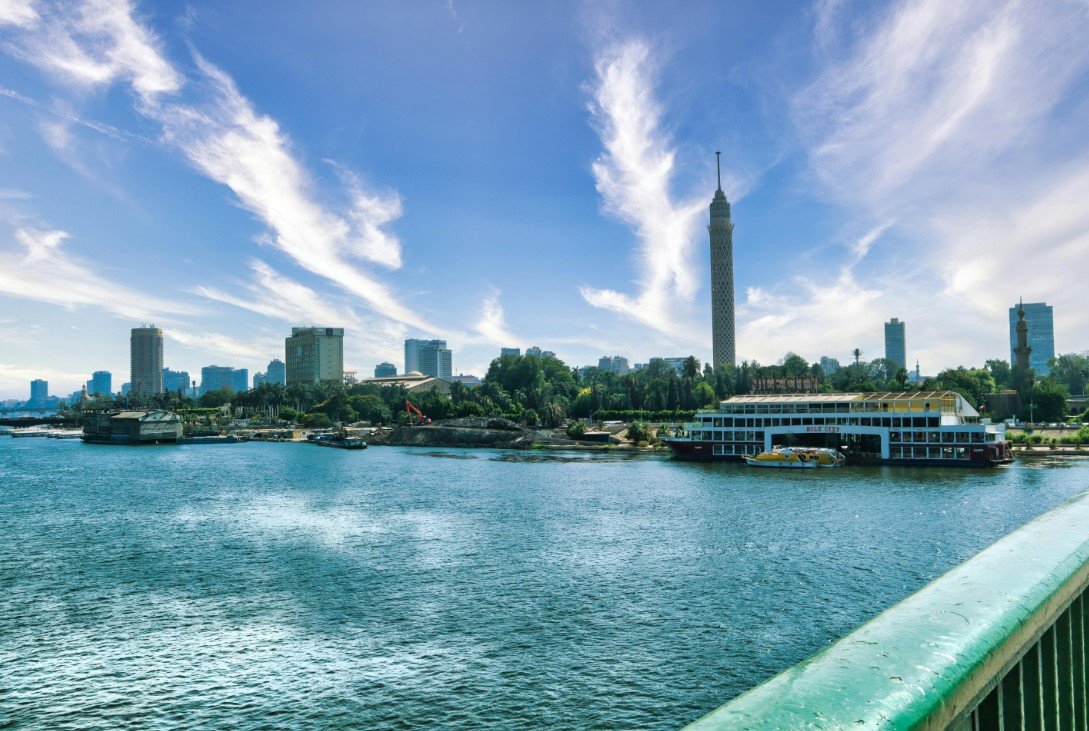The Majestic Nile at Sunset
As the sun sets over Cairo, the Nile River transforms into a canvas of vibrant colors. The golden hues of the setting sun reflect off the water, creating a mesmerizing spectacle. Fishing boats sail gracefully along the river, adding to the picturesque scene. This daily ritual is a reminder of the timeless connection between the Nile and the people who live along its banks.
The sunset view of the Nile is not just a visual delight but also a moment of tranquility in the bustling city of Cairo. Residents and visitors alike gather along the riverbanks to witness this natural wonder. The calm waters and the gentle breeze provide a soothing escape from the city’s hustle and bustle. The sight of the sun dipping below the horizon, casting a warm glow over the river, is a moment of pure serenity.
The Nile River has always been a central part of Cairo’s identity. It has shaped the city’s history, culture, and economy. The river’s fertile banks have supported agriculture for thousands of years, making it the lifeblood of Egyptian civilization. Today, the Nile continues to play a vital role in the lives of Cairo’s residents, providing water, transportation, and a sense of continuity with the past.
Historical Significance of the Nile
The Nile River holds immense historical significance for Egypt. It is often referred to as the “lifeblood” of the country, as it has sustained civilizations for thousands of years. The ancient Egyptians relied on the Nile for agriculture, transportation, and trade. The river’s annual flooding deposited nutrient-rich silt on the land, making it fertile and ideal for farming. This agricultural abundance allowed the ancient Egyptians to build a prosperous and advanced civilization.
The Nile also served as a vital trade route, connecting Egypt with other regions of Africa and the Mediterranean. Goods such as gold, ivory, and spices were transported along the river, facilitating cultural exchange and economic growth. The river’s strategic importance made it a focal point for political and military power. Many of Egypt’s most famous historical sites, including the pyramids and temples, were built along the Nile, reflecting its central role in the country’s history.
Today, the Nile continues to be a symbol of Egypt’s rich heritage. The river’s banks are dotted with historical landmarks and archaeological sites that attract tourists from around the world. The Nile’s enduring presence serves as a reminder of Egypt’s ancient glory and its ongoing connection to the past. The river’s significance extends beyond its historical importance, as it remains a vital resource for the country’s modern development.
Modern-Day Importance
In contemporary Cairo, the Nile River remains a vital resource and a focal point of daily life. The river provides water for drinking, irrigation, and industrial use. It supports agriculture, which is a crucial sector of Egypt’s economy. The Nile’s waters are also used for generating hydroelectric power, contributing to the country’s energy needs. The river’s importance to Cairo’s infrastructure and economy cannot be overstated.
The Nile is also a popular destination for leisure and tourism. River cruises, boat tours, and waterfront cafes offer residents and visitors a chance to experience the river’s beauty up close. The riverbanks are lined with parks, gardens, and promenades, providing green spaces for relaxation and recreation. The Nile’s scenic views and tranquil atmosphere make it a cherished part of Cairo’s urban landscape.
Efforts to preserve and protect the Nile are ongoing. Environmental initiatives aim to address pollution and ensure the sustainable use of the river’s resources. The Nile’s health is crucial for the well-being of Cairo’s residents and the overall sustainability of the region. By safeguarding the river, Egypt is preserving a vital part of its natural and cultural heritage for future generations.

